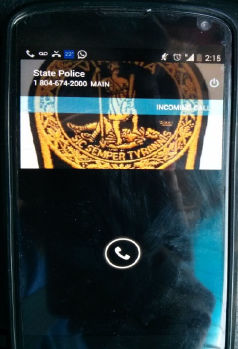Please be advised that the Internal Revenue Service (IRS) usually first contacts people by mail – not by phone – about unpaid taxes. The IRS would not request for payment using a pre-paid debit card or wire transfer. The IRS would not ask for a credit card number over the phone.
The callers who commit this fraud often:
- Use common names and fake IRS badge numbers
- Know the last four digits of the victim’s Social Security Number
- Make caller ID information appear as if the IRS is calling
- Send bogus IRS e-mails to support their scam
- Call a second time claiming to be the police or someone from the department of motor vehicles, and the caller ID supports their claim
What to do if you get a call claiming to be with the IRS asking for a payment:
- If you owe federal taxes or think you might owe taxes, hang up immediately and call the IRS at 800-829-1040. IRS employees can help you with your payment questions.
- If you do not owe taxes, call and report the incident to the Treasury Inspector General for Tax Administration (TIGTA) at 800-366-4484.
- You can also file a complaint with the Federal Trade Commission. Include “IRS Telephone Scam” to the comments in your complaint.
3. Shady Scholarship Agents:


